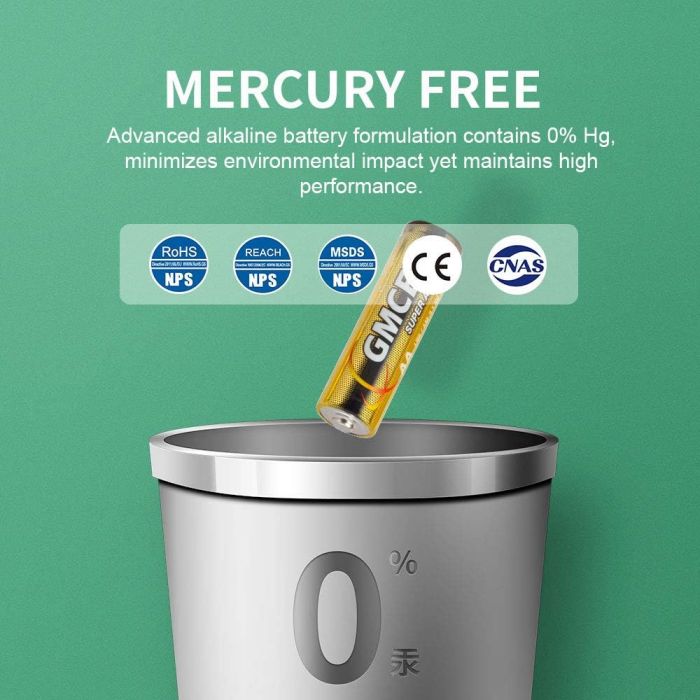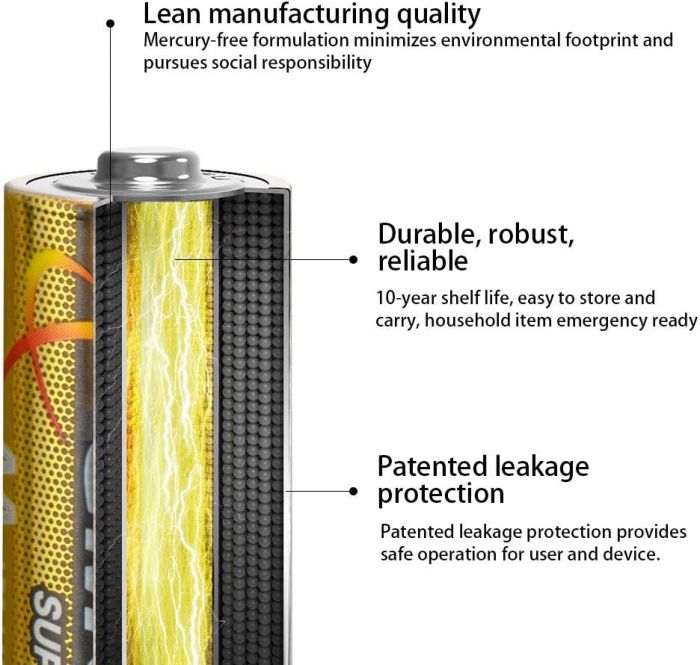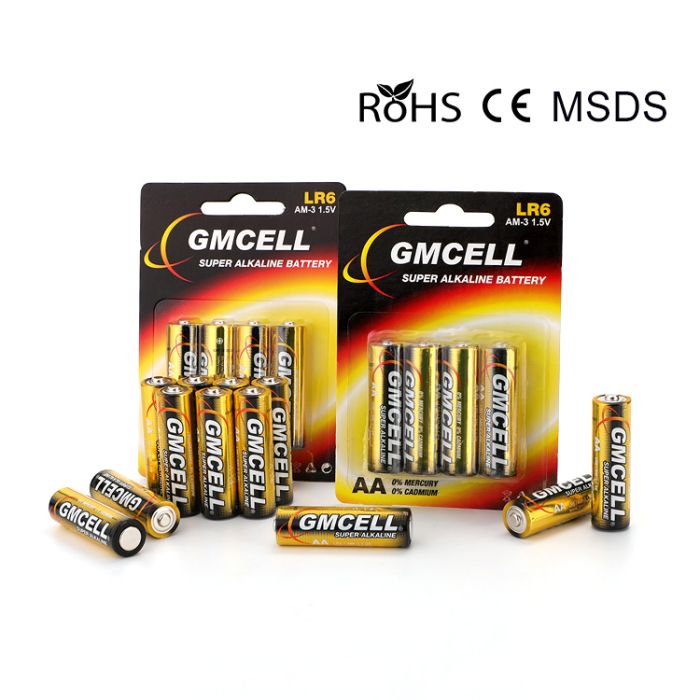

In the realm of portable power sources, alkaline batteries have long been a staple due to their reliability and efficiency. However, with growing environmental concerns and stricter regulations, the development of mercury- and cadmium-free alkaline batteries has marked a significant stride towards safer and more sustainable energy solutions. This article delves into the multifaceted benefits of adopting these environmentally friendly alternatives, emphasizing their ecological, health, performance, and economic advantages.


**Environmental Sustainability:**
One of the most salient benefits of mercury- and cadmium-free alkaline batteries lies in their reduced environmental impact. Traditional alkaline batteries often contained mercury, a toxic heavy metal that, when improperly disposed of, could contaminate soil and waterways, posing risks to wildlife and ecosystems. Similarly, cadmium, another toxic substance found in some batteries, is a known carcinogen that can cause severe harm to human health and the environment. By eliminating these substances, manufacturers significantly reduce the risk of pollution and align with global efforts towards eco-friendly product design.

**Environmental Sustainability:**
One of the most salient benefits of mercury- and cadmium-free alkaline batteries lies in their reduced environmental impact. Traditional alkaline batteries often contained mercury, a toxic heavy metal that, when improperly disposed of, could contaminate soil and waterways, posing risks to wildlife and ecosystems. Similarly, cadmium, another toxic substance found in some batteries, is a known carcinogen that can cause severe harm to human health and the environment. By eliminating these substances, manufacturers significantly reduce the risk of pollution and align with global efforts towards eco-friendly product design.

**Enhanced Performance Characteristics:**
Contrary to initial concerns that removing mercury might compromise battery performance, advancements in technology have enabled mercury- and cadmium-free alkaline batteries to maintain, if not exceed, the performance levels of their predecessors. These batteries offer high energy density, ensuring longer runtimes for power-hungry devices. Their ability to provide stable voltage output across a wide range of temperatures and loads makes them suitable for various applications, from remote controls to high-drain devices like digital cameras. Additionally, they exhibit better leak resistance, ensuring device safety and longevity.

**Economic and Regulatory Compliance:**
Adopting mercury- and cadmium-free alkaline batteries also brings about economic benefits. While initial purchase costs may be comparable or slightly higher, the extended lifespan of these batteries translates to a lower cost per use. Users need to replace batteries less frequently, reducing overall expenses and waste. Moreover, compliance with international regulations such as the EU’s RoHS (Restriction of Hazardous Substances) directive and similar laws worldwide ensures that products incorporating these batteries can be marketed globally without legal impediments, opening up broader commercial opportunities.
**Promotion of Recycling and Circular Economy:**
The move towards mercury- and cadmium-free alkaline batteries encourages recycling initiatives. As these batteries become more environmentally benign, recycling becomes safer and easier, promoting a circular economy where materials can be recovered and reused. This not only conserves natural resources but also reduces the dependency on raw material extraction, further contributing to sustainability goals.
In conclusion, the shift towards mercury- and cadmium-free alkaline batteries represents a pivotal step in the evolution of portable power. These batteries embody a harmonious blend of technological innovation, environmental responsibility, public health protection, and economic practicality. As we continue to navigate the challenges of balancing energy needs with environmental stewardship, the widespread adoption of such eco-friendly batteries stands as a testament to our commitment towards a cleaner, healthier, and more sustainable future.
 AAA Batteries
AAA Batteries AAA 600mAh
AAA 600mAh USB Rechargeable Batteries
USB Rechargeable Batteries
 USB Battery
USB Battery AAA Batteries
AAA Batteries AAA R03 Batteries
AAA R03 Batteries CR2032
CR2032 AAA 600mAh
AAA 600mAh USB Rechargeable Batteries
USB Rechargeable Batteries



